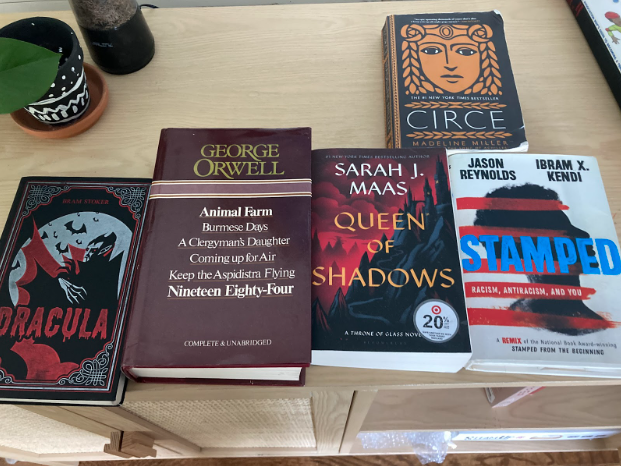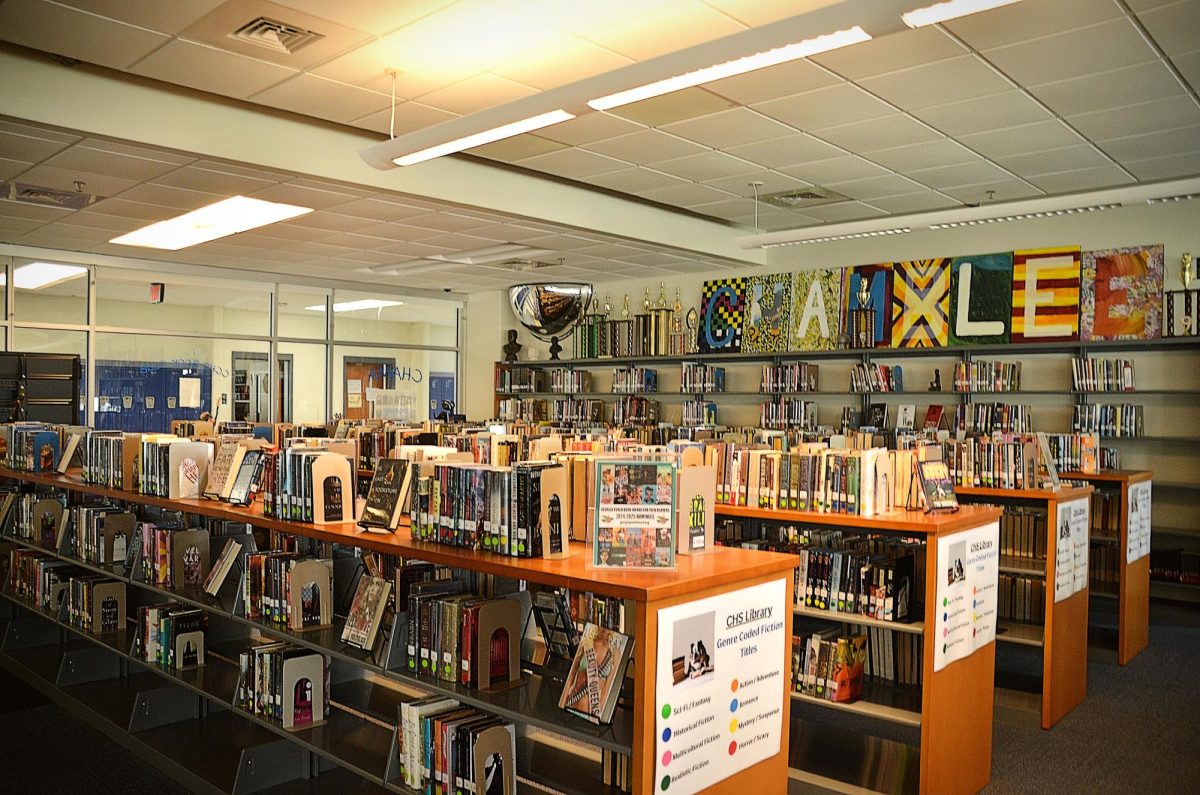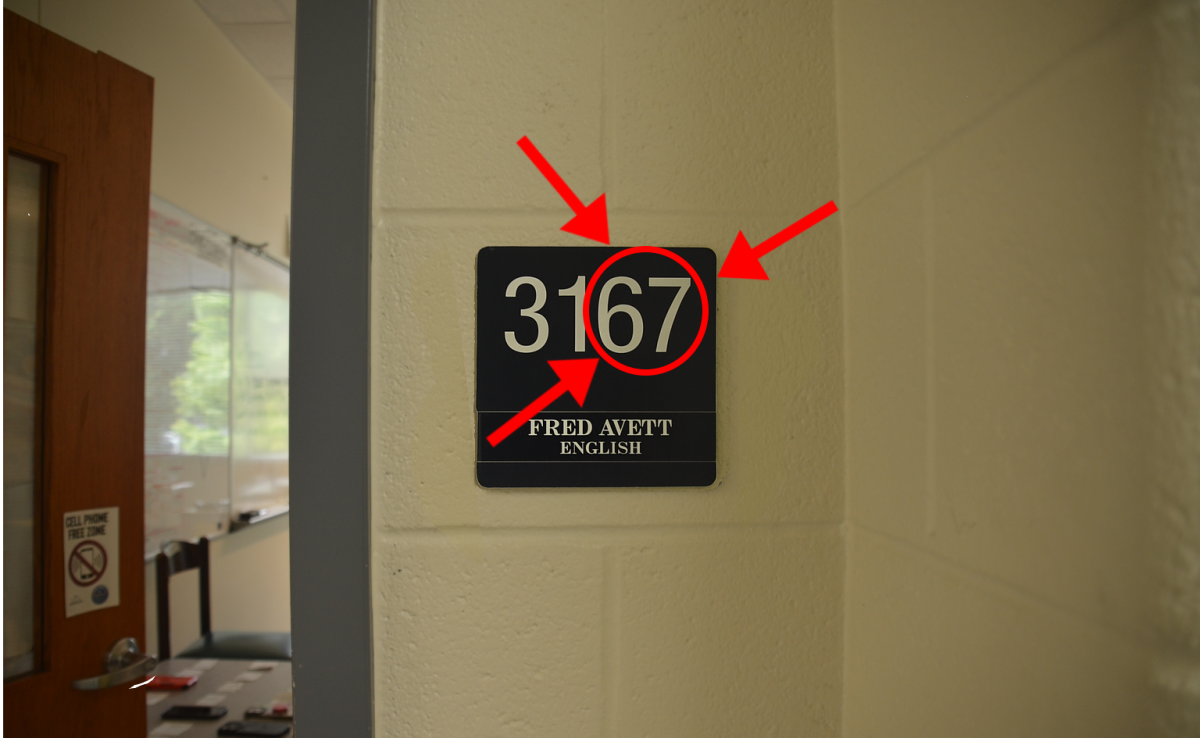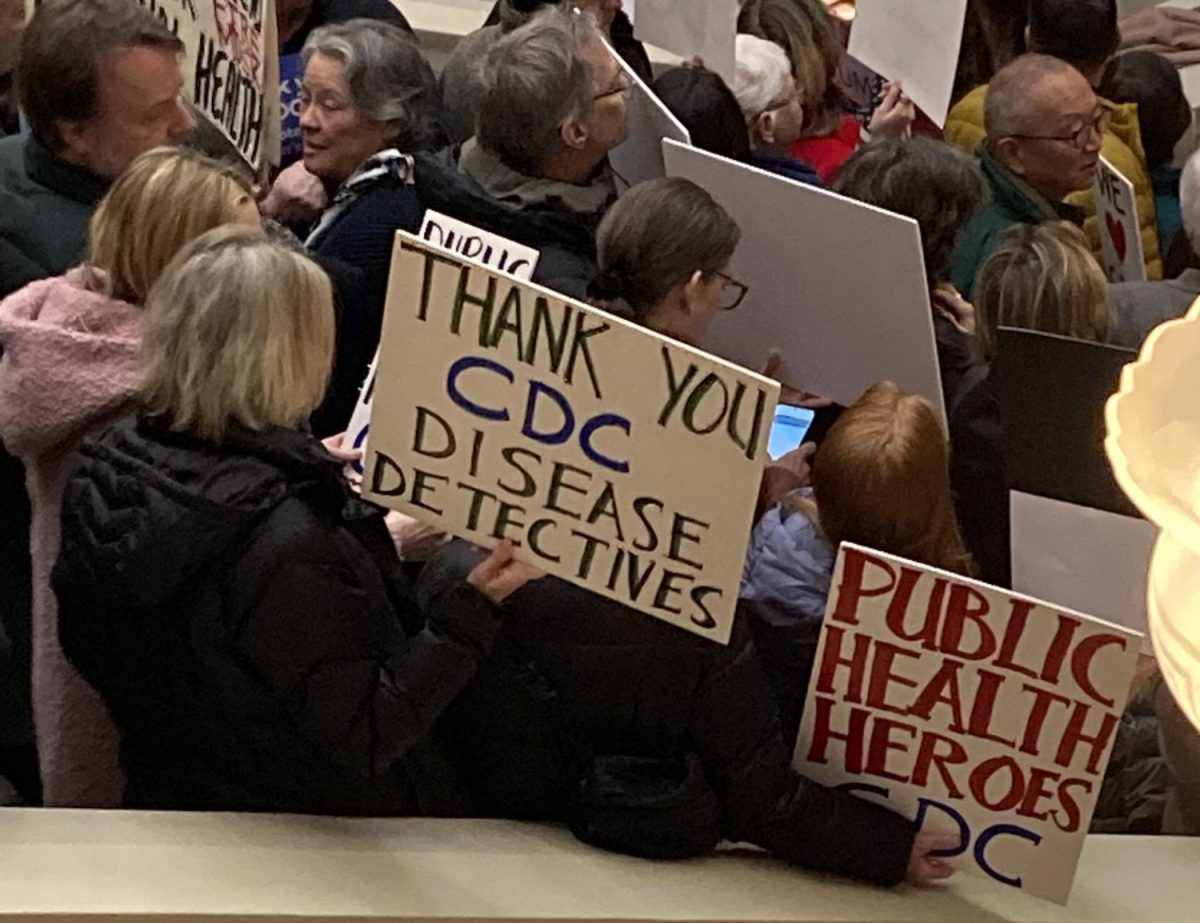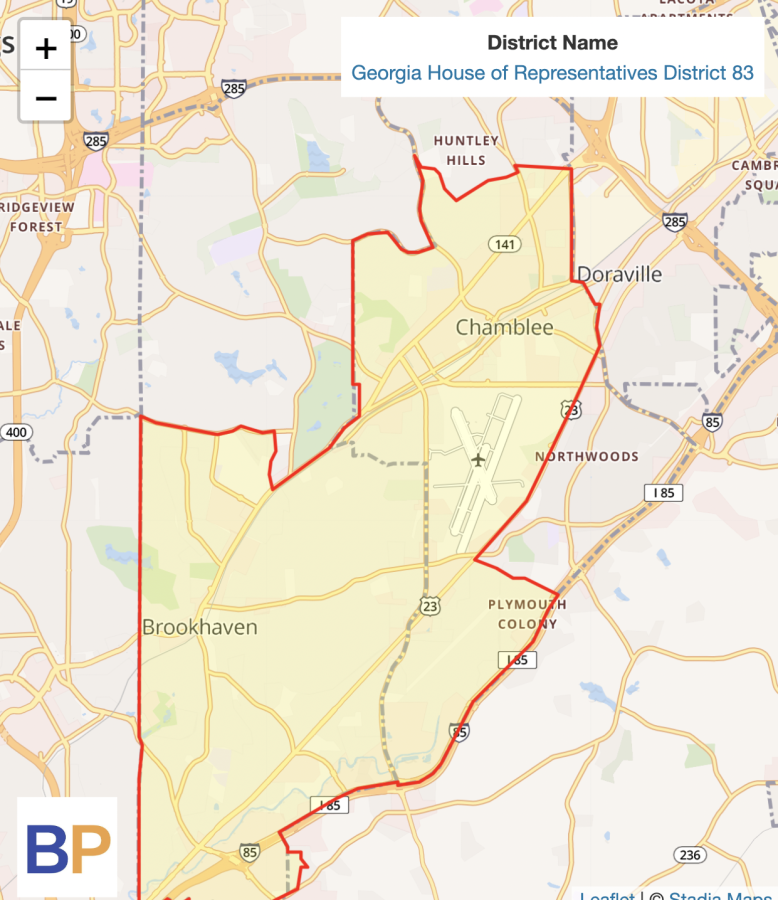The Supreme Court first ruled on book banning in Board of Education, Island Trees Union Free School District No. 26 v. Pico, in 1982. In this case, the majority of the justices decided that it is a First Amendment violation if books are banned to eliminate the diversity of ideas, whether for nationalistic, political, or religious reasons according to Britannica. However, they also affirmed that school officials have wide discretion in removing public school library books (but not if they can point to a non-discriminatory reason to remove them).
Many of the books that were banned contained non-white or LGBTQ+ characters. If this were the only reason for their removal, it would be illegal under this ruling. However, public schools are able to ban books for nondiscriminatory reasons like for possessing obscene content.
Now, several books face these challenges, from classics like Animal Farm, The Catcher in the Rye, and Slaughterhouse Five, to newer novels like New Kid and This Book is Gay. These books face challenges due to claims of sexually explicit material, offensive language, and graphic violence among others.
Barnes and Noble lists several books including the muckraking “The Jungle,” American classic “The Great Gatsby,” and dystopian novels such as “Fahrenheit 451,” “The Handmaid’s Tale,” “Animal Farm,” “1984,” and “Brave New World.”
Books have even been challenged at the Chamblee High School library.
“In the past, I had a couple of challenges, which means [someone] wanted to remove a book. One person who challenged “The Bluest Eye” lost, and the other challenge was on a book about Scientology, so I added a few works by L. Ron Hubbard, [the founder of scientology] to balance out the viewpoints [expressed in the book about Scientology],” said Christine Holland, the Chamblee High School librarian.
Though some challenges may encourage a wide variety of books, other challenges are less constructive.
Eighteen Chamblee High School students were surveyed on their opinions of several of these challenged books.
Though many students have read “Of Mice and Men,” “Fahrenheit 451,” “The Giver,” “To Kill A Mockingbird” and “Lord of the Flies” among other books – all of which are parts of the ELA curriculum – most of the students who responded to the survey felt any of these books or any of these books aside from religious texts should be banned for a high school audience and in general.
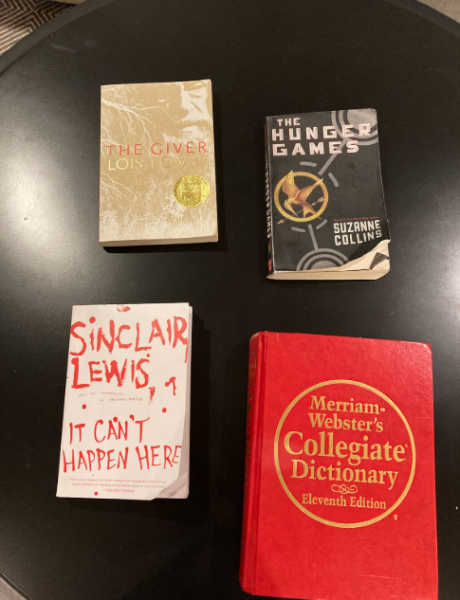
“I don’t think there are very many books that deserve to be banned that are particularly well-known,” said Andrew Cox (‘28). “[Also,] I read a lot, so it would be very annoying if the books that I want to read are banned.”
However, other students feel certain books – even some discussed in school – should be banned.
“New Kid presents itself as this extremely woke and liberal book that tries to put a focus on inclusion and diversity, but ends up doing the exact opposite,” wrote Maven Bolick (‘27). “While one of the key points in the book is that it’s considered racist to stereotype black people with playing basketball, a few pages later, the author stereotypes white people with playing golf.”
This is not a mere inconvenience, however; it impacts constituents’ futures.
“The whole point of books is to teach you some kind of lesson: the theme of the book,” said Addie Byrd (‘27). “Without that, how are you going to learn those things? I read The Change, and the message was sometimes you just have to do it yourself. Maybe someone out there is going to read it, and it’s going to inspire them to do something.”
Not everyone gets the same message from the same book. Some people may think a book is unnecessary, but others may learn something important from it.
“I shouldn’t be able to ban the book from anyone else who might benefit from it even if I didn’t,” wrote Julianne Lee (‘27).
Book banning also limits what people can know by limiting what kinds of characters can be in books.
“People need to understand a wider variety of perspectives, and that’s one of the whole points of fiction,” said Cox. “To understand how things might be seen or work from another person or another group whose ideas or perspectives of how something happens or why.”
Most students interviewed do not generally support book bans, only supporting bans of books with graphic violence, offensive content, or pornographic material.
“If it is inciting violence or inciting hate crimes or other bad actions, I am in support of banning it, but most books should definitely be protected by the First Amendment,” said Travis Sun (‘26).
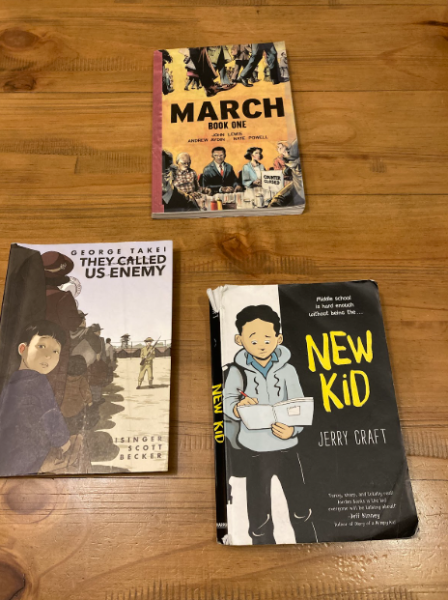
Other students believe that allowing for the restriction of certain individual’s access to specific novels is not the worst idea.
“Books may need to be limited for younger readers but never fully banned,” wrote Ronit Nemenman (‘26).
Other students feel books should be treated as speech and should be similarly protected.
“Books are free speech at its best,” wrote Jamie Hernquist (‘28).
Even if the book possesses radical or dangerous content, some feel it should remain on library shelves.
“I believe that no book should be banned completely, regardless of content,” wrote Emory Sampson (‘28). “Though I could understand the case for completely banning a book that directly calls for violence, I believe that banning any books sets a dangerous precedent, wherein [any] speech that those in power dislike could be banned.”
Other students also are suspicious, at best, of the government’s intentions when banning books.
“Governments that ban books do so to hide the truths that come from interpretations,” wrote Dani Singapuri (‘26).
If a book were to be banned, students feel schools should handle it individually, rather than through a far-reaching presidential action.
“[Book-banning should definitely] be more local because there’s so many differences across the U.S.,” said Sun.
Because of these differences it is important to understand others’ perspectives which comes in part from reading a diverse set of books.
Book banning also brings an economic impact. The book-banning process itself is lengthy and costly for states. School districts spend thousands of dollars per year in Florida to review all challenged books, and the implementation of Texas’s book bans would cost taxpayers a sum in the millions, as boards must pay staffers to review controversial texts, according to Marketplace. Librarians, some of whom already work long hours six days a week, also have to devote time to reviewing challenged books, which either increases their workday, or decreases time for more important matters.
It is also devastating for the authors who write these books, both by limiting income from the books themselves and chances for them to speak at schools and other places, which can be a significant portion, as much as one-third, of a writer’s income. Nevertheless, parents challenge books relatively often, and a few people even challenge thousands of books.
“I don’t think it’s fair [for the government] to say that they can’t [write to make a living] any more,” said Byrd.
In addition to impacting the flow of income for writers, it also impacts how they write their books and what they write about.
“I could definitely see it causing people to write less of what they want and more to appease censorship rules or laws,” said Sun, “and obviously it can ruin whole careers as well.”
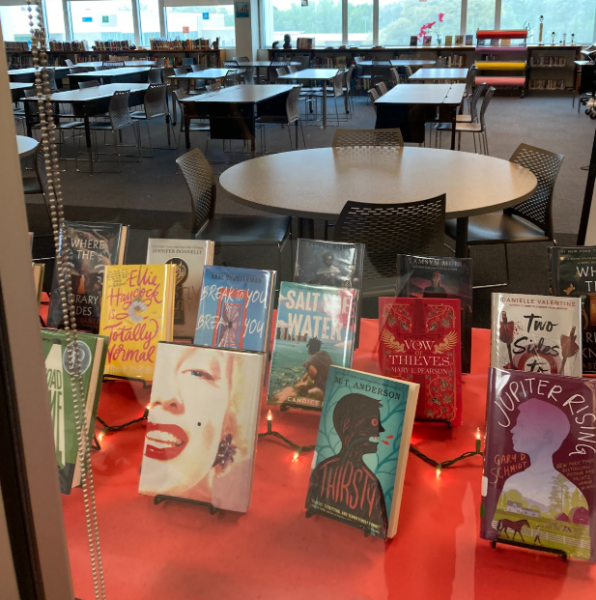
After books were removed from Pentagon schools, people are watching the new presidential administration to see what other actions they may take in this area.
“I’m worried that funding will be lost for libraries with books about LGBTQ characters for so-called ‘wokeness’,” said Holland, the CHS librarian.
As the rate of challenges per year increases, students grow concerned about the number and the specific books that are banned especially since counties are attempting to ban a number of classics and other widely-celebrated books. While some of these challenges may come from a sincere concern about the health and safety of children and adolescents, many students feel these books are necessary to develop empathy and to become a good citizen. Also, writers themselves face a loss of income both from the books themselves, and lost opportunities relating to the book, and librarians fear losing funding over a book the wrong person finds displeasing.

